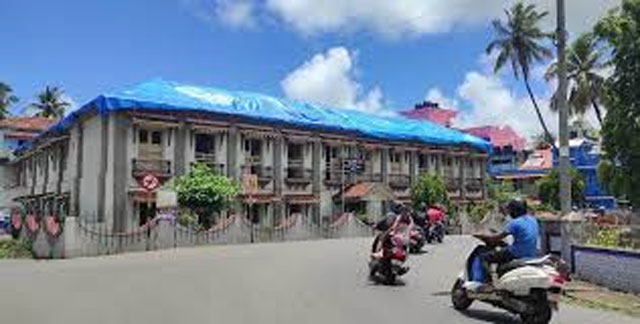Daijiworld Media Network - Margao
Margao, Nov 7: The adage “Justice delayed is justice denied” rings true in Margao, where thousands of litigants continue to suffer due to a mounting backlog of cases and prolonged judicial vacancies.
As per official court records dated January 31, 2025, Margao’s Trial Courts are burdened with 9,079 pending cases — comprising 5,276 civil and 3,803 criminal matters — highlighting a growing crisis in the city’s judicial machinery.

Margao currently operates Senior Division Courts including A-Court (CJM), First, Second, and Third Additional Courts, and six Junior Division Courts (C, D, E, F, and G). However, only three Senior Division Courts and one Junior Division Court are functional at present, with nearly half the posts lying vacant.
Advocate Vidatha Rajesh Dessai voiced deep concern over the situation, saying that citizens approach the courts with hope, but repeated adjournments and years-long pendency have eroded public faith. “Many spend a lifetime waiting for justice — some even die before their cases conclude,” he remarked.
Dessai emphasized the need for specialised courts to handle family, civil, and criminal cases separately for faster disposal. He suggested that quick-disposal matters could be taken up on Saturdays with mutual consent. “Judges and staff face immense stress managing numerous cases daily. Advocates, judges, and staff must work in unison to deliver timely justice,” he added.
South Goa Advocates Association (SGAA) President Adv Prasad Naik confirmed the acute shortage of judges, which has paralysed judicial functioning. “Around 50% of courts are vacant, leading to severe delays and denial of justice,” he said.
Naik informed that while two new Junior Division Judges have been appointed to Margao, they are still under training, and delays are likely to persist until they assume charge. He further explained that due to heavy workloads, cases are often adjourned even after arguments are completed, and witnesses from distant areas return unheard, compounding the frustration of litigants.
Execution proceedings — meant to deliver final relief — also remain stalled for years, denying decree holders justice already granted. Naik urged for temporary deployment of additional judges in vacant courts until the new appointments take effect.
A litigant, Amol Naik (name changed), whose civil case has been pending for years, shared his distress: “I am a common man without financial backing. It’s painful to keep waiting like this.”
The growing pendency in Margao stands as a grim reminder that unless judicial vacancies are filled and systemic reforms undertaken, justice will continue to remain a distant dream for thousands.